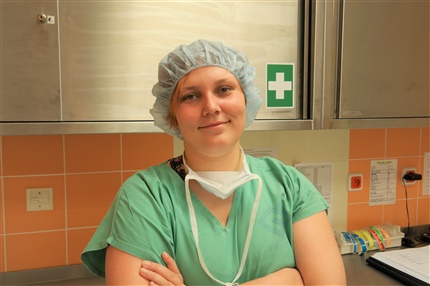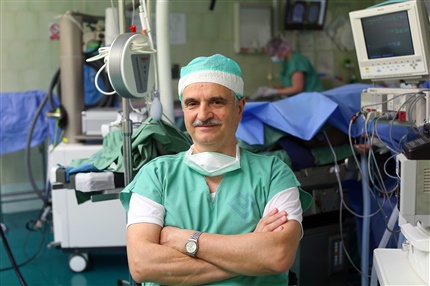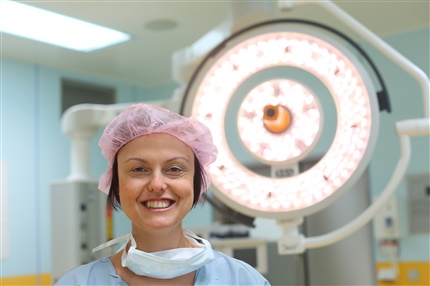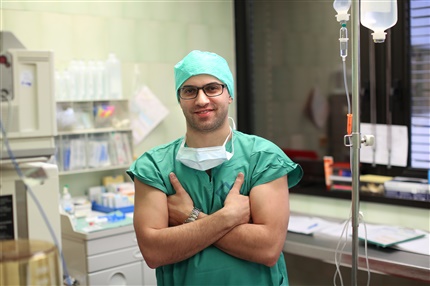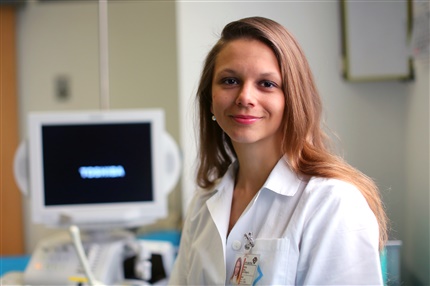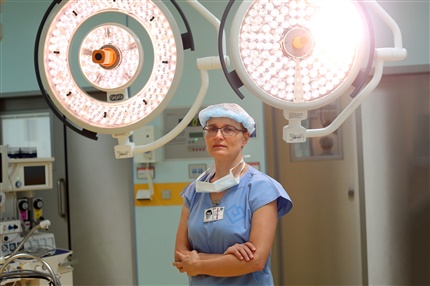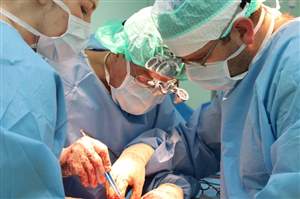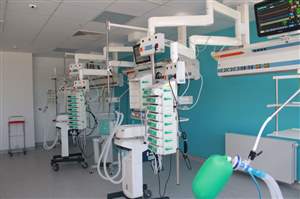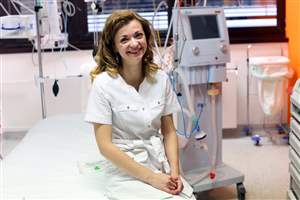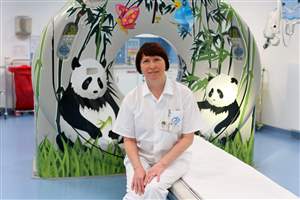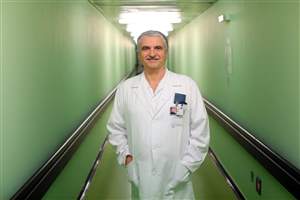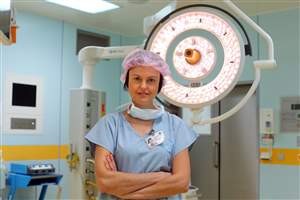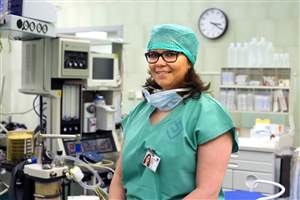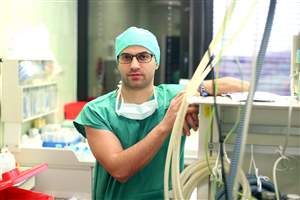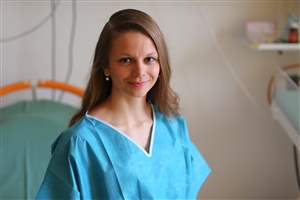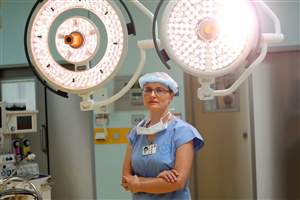A brief overview of the Anesthesia, Resuscitation and Intensive Care Specialized Center
In the Specialized Center of Anesthesiology, Resuscitation, and Intensive Care Medicine we provide anesthesia services for the whole hospital and comprehensive care for patients in critical condition, as well as, postoperative care for patients recovering after difficult surgeries.
We provide around 30.000 anesthesia procedures for adults and about 11.000 anesthesia procedures for children each year.
Our center consists of 5 departments – Adult Anesthesia, Pediatric Anesthesia, Patient’s Wards for Adults, Patient’s Wards for Children, and the Department of Chronical, Resuscitation, and Intensive Care.
How will your detailed schedule look like? What kind of surgeries, procedures, methods or treatment can you observe? Check what can you see by shadowing every member of the mentoring team.
Is this specialty placement ideal for you?
- This placement is ideal for you if you are already experienced in the healthcare environment and advanced in your studies as shadowing anesthesiologist in various departments across the hospital brings you an unique opportunity to discover various specialties and procedures. Check the daily schedule of your mentoring team, the members work in Neurosurgery, Ophthalmology, ARU, Orthopedics, Gynecology, Pediatric Surgery and many other departments. This type of placement is very intense while observing longer surgeries.
- This placement is a great opportunity for those of you, who want to become doctors one day. Anesthesiology is an all embracing specialty and you will work with adults and children, where different approach is applied. Another part of our specialized centre, the Resuscitation Unit for Adults and Children, focuses on the same specialties, is more suitable for students who would like to become nurses. If you are uncertain about your desired profession, but you are interested in this specialty, applying for placement in both sections of the hospital is an ideal solution.
Let's take a closer look at the specialties…
Our center covers 3 branches of medicine. The first specialty is anesthesiology and the treatment of chronical pain, which offers various techniques of desensitization using pharmacological methods or alternative approaches such as Hypnos-anesthesia or acupuncture.
The second one is resuscitation that requires early cardiopulmonary arrest recognition, quick actions from trained staff who initiate Cardio Pulmonary Resuscitation (CPR) with the use of medicaments and defibrillators or other special equipment when needed. This urgent performance is called “Advanced Life Support” (ALS).
Our third specialty is the intensive care medicine and deals with critically ill patients who have life-threating conditions and require professional organ support and incessant monitoring.
Now you can see that to provide the care the constant presence of our team members is necessary, who are ready for immediate treatment. We, as your mentoring team, are responsible for monitoring and securing the vital functions of the patient during surgery, perform inhalation anesthesia either with or without intubation, and also assist in postoperative care while tracking the patient’s condition. Since the anesthetists assist during most surgeries, you will witness a large spectrum of specialized operations within various surgical departments. For example Neurosurgery, Cardiovascular Surgery, Obstetrics and Gynecology, and other specialties.
Nowadays, we employ 120 doctors, almost 300 nurses, and dozens of other healthcare and non-healthcare employees. Our workplace is the biggest of its type, not only in the University Hospital in Motol, but in the Czech Republic as well. In 2014, a total of 1.327 patients were hospitalized here. Out of it, 727 patients were adults, 566 were children, and 32 patients needed chronic intensive care.
The Center consists of these departments:
Our center is divided into 5 sections – Adult Anesthesia, Pediatric Anesthesia, Patient's Wards for Adults, Patient's Wards for Children, and the Department of Chronical, Resuscitation, and Intensive Care. Something to think about, every day our anesthesiologists work on 60 operating rooms simultaneously. In 2014 we reconstructed the rooms with acute intensive care beds for adults with 22 fully equipped beds of the latest technology.
We are a leading and coordinating center for the postgraduate education of doctors and nurses and we arrange trainings for anesthesiologists and other specialists, too. Our center also ensures the teaching of students who are in the process of their Master's degree program and the Bachelor's course of the 2nd Faculty of Medicine, as well as, other students from international education programs.
Who do we take care of?
We take comprehensive care of patients with chronical obstructive lung disease, patients who have had a cerebral-crania injury, stroke, or other multiple trauma, patients with myasthenia gravis, neurological degenerative diseases, and all other patients that have medical conditions requiring long-term therapy, specialized rehabilitation, and nutritive support.
Our methods and procedures
Our numerous treatment methods and procedures include routine sonographic techniques in nerve block anesthesia and safe vascular inputs for adults and children:
- Peripheral nerve blocks for pediatric and adult patients
- Analgosedation especially for pediatric patients and also for adult patients
- Sonography for early diagnosis of bleeding in cavities of traumatized patients
- The latest video laryngoscope method in cases of difficult intubation, including one-use intubation instruments
- Combined neuraxial blockades for replacements of major joints (hip, knee)
- Routine neuromuscular blockade reversal after anesthesia
- Routine monitoring of cerebral oximetry during surgeries of extracorporeal circulation and the use of deep hypothermia
And there’s much more that you can observe!
How does the usual schedule look like?
- You will have to get up very early as the mentors’ itinerary is very busy right from the morning. The hours spent in the hospital will differ daily according to the schedule and length of surgeries and other procedures. Always ask your mentor when and where you should meet him or her for the following day and you can also ask about their itinerary so you are prepared. There also might be some situations when your mentor contacts you out of the daily schedule when some interesting procedure occurs.
If you are not sure whether this choice is suitable for you, don’t hesitate to contact us. We will discuss your experience and motivation and come up with the best solution for you.

